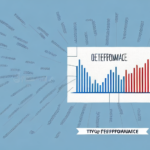Ecommerce at Scale: The Role of Technology
In recent years, ecommerce has emerged as a dominant force in the global economy, disrupting traditional commerce models and revolutionizing how businesses interact with customers. As ecommerce continues to grow, businesses face unique challenges in scaling their operations to meet the demands of an increasingly connected and digitally savvy consumer base. This article explores the key role that technology plays in facilitating ecommerce at scale, highlighting major trends and innovations driving growth in this dynamic marketplace.
The Evolution of Ecommerce
Ecommerce traces its origins to the late 20th century, with the advent of the internet marking the true beginning of online shopping. Initially a niche market driven by tech-savvy consumers seeking specialized products, ecommerce expanded rapidly as online marketplaces like Amazon and eBay emerged. Today, ecommerce accounts for nearly 20% of total retail sales globally, a figure projected to grow further by 2025 (Statista).
The rise of mobile devices has been a significant driver of ecommerce growth. With smartphones and tablets becoming ubiquitous, consumers can shop online from anywhere at any time, fueling the surge in mobile commerce (m-commerce). Additionally, social commerce has gained traction, with platforms like Facebook, Instagram, and Pinterest serving as crucial channels for product discovery and sales.
Technological Innovations Revolutionizing Ecommerce
Artificial Intelligence and Machine Learning
Artificial Intelligence (AI) and Machine Learning (ML) are transforming ecommerce by enabling personalized shopping experiences and optimizing business operations. AI-powered chatbots provide instant customer support, while ML algorithms analyze vast amounts of data to identify consumer behavior patterns and preferences (Forbes).
Cloud Computing and Big Data Analytics
Cloud computing offers scalable infrastructure that can handle increased traffic and transactional volume, essential for growing businesses. Big Data Analytics allows companies to gain insights into consumer behavior, optimize marketing strategies, and enhance the overall customer experience (Gartner).
Virtual and Augmented Reality
Virtual Reality (VR) and Augmented Reality (AR) technologies provide immersive shopping experiences. Customers can virtually try on clothes or visualize how furniture fits in their homes, reducing return rates and increasing customer satisfaction (Business Insider).
Key Technological Advancements Driving Ecommerce Growth
- Mobile Technology: Continued advancements in mobile platforms enhance user experience and accessibility.
- Blockchain: Provides secure and transparent payment infrastructures, reducing fraud and increasing trust.
- Automation and Robotics: Streamlines operations through automated fulfillment centers and autonomous delivery systems.
- 5G Networks: Enables faster and more reliable mobile internet, supporting richer online experiences.
Building a Robust Ecommerce Platform
A robust ecommerce platform is crucial for scaling operations. It should efficiently manage inventory, process payments, and track orders while offering features like personalized marketing, product recommendations, and social media integration. Additionally, optimizing the platform for search engines can increase visibility and attract more customers.
Security is paramount; advanced security measures protect sensitive customer information and prevent fraud, fostering trust and maintaining a positive reputation (CSO Online).
Harnessing AI and ML for Enhanced Ecommerce
AI and ML technologies enable businesses to deliver personalized shopping experiences. Recommendation engines suggest products based on browsing and purchase history, demographics, and location, leading to increased sales and customer satisfaction. Additionally, dynamic pricing strategies powered by AI can adjust prices in real-time based on market trends and consumer behavior, ensuring competitiveness and maximizing profits (McKinsey).
Big Data Analytics in Scaling Ecommerce
Big Data Analytics provides actionable insights into consumer behavior and market trends. By analyzing data from various sources, businesses can refine their marketing strategies, optimize the customer journey, and identify new opportunities for growth. Personalization driven by big data increases engagement and loyalty, essential for long-term success.
- Customer Segmentation: Understanding different customer groups to tailor marketing efforts.
- Predictive Analytics: Anticipating future trends and consumer needs.
- Performance Metrics: Measuring and improving key business performance indicators.
Streamlining Operations with Automation and Robotics
Automation and robotics play a pivotal role in enhancing operational efficiency and reducing costs. Automated fulfillment centers and warehouse robots speed up order processing and reduce errors, while autonomous delivery vehicles ensure timely and reliable deliveries. These technologies enable businesses to scale operations without a proportional increase in labor costs.
For example, implementing automated inventory management systems can significantly reduce stock discrepancies and improve order accuracy, leading to higher customer satisfaction and lower return rates (Supply Chain Digital).
Cybersecurity and Data Privacy in Ecommerce
With the increasing volume of transactions and data, cybersecurity and data privacy have become critical concerns for ecommerce businesses. Protecting sensitive customer information through robust encryption, regular security audits, and stringent access controls is essential to prevent data breaches and maintain consumer trust.
Implementing comprehensive cybersecurity measures, including firewalls, intrusion detection systems, and secure payment gateways, helps safeguard against cyber threats. Additionally, educating employees about data privacy best practices minimizes the risk of internal security breaches (Cybersecurity Insiders).
The Future of Ecommerce: Emerging Technologies
The future of ecommerce lies in the continuous integration of emerging technologies. Innovations such as 5G, the Internet of Things (IoT), and advanced robotics will further enhance the shopping experience and operational efficiency. Additionally, advancements in blockchain technology will provide even more secure and transparent transaction processes.
Personalized AI-driven experiences, coupled with seamless omnichannel integration, will set the stage for the next generation of ecommerce, ensuring businesses remain competitive in an ever-evolving digital landscape (Forbes).
Conclusion
Technology plays an indispensable role in scaling ecommerce operations. From AI and ML to cloud computing and automation, technological advancements drive growth and innovation in the ecommerce sector. Businesses must stay abreast of the latest trends and adopt robust, secure platforms to meet the evolving needs of today's connected and digitally savvy consumers, ensuring sustained success in the competitive ecommerce landscape.




















